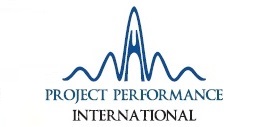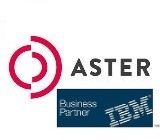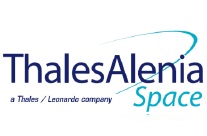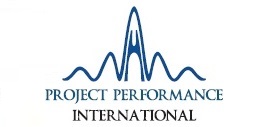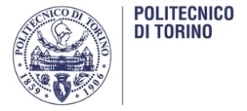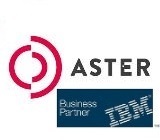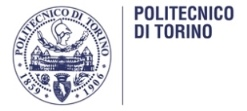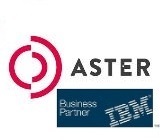Tutorial in Systems Engineering
Lunedì 14 Novembre - Programma ed Interventi
|
|
Relatore: Enrico Mancin (IBM) |
Sommario: Not Available. |
Note Biografiche sul Relatore: Enrico Mancin Not Available. |
|
|
Relatore: Lucio Tirone (Aster) |
Sommario: Not Available. |
Note Biografiche sul Relatore: Lucio Tirone is Technical Director at Aster S.p.A., he has over 18 years of field experience, the first part of which spent consolidating his Electromagnetic background, in the development of object oriented software for the computation of e.m. propagation in complex urban/non-urban environments. Since then he has been involved in Systems Engineering activities for the analysis, design, implementation and validation of large technological projects in the Defense, Aerospace and Transport sectors. Certified INCOSE CSEP since 2012, and OCSMP since 2015, he is currently President of the Italian Association of Systems Engineering - INCOSE Italia Chapter. |
|
|
Relatore: Andrea D’Ambrogio (Università di Roma "Tor Vergata") |
Sommario: Model-based systems engineering (MBSE) is defined by the International Council on Systems Engineering (INCOSE) as "the formalized application of modeling to support system requirements, design, analysis, verification, and validation activities beginning in the conceptual design phase and continuing throughout development and later life cycle". The advantages obtained by the MBSE approach, in terms of enhanced communications, reduced development risks, improved quality, increased productivity and enhanced knowledge transfer, can be further scaled up by innovative model-driven approaches that treat models as the primary artifacts of development, by introducing a radical shift from a strictly contemplative use of models to a more productive and powerful model use. Model-driven engineering enhances the typical MBSE advantages by use of metamodeling techniques and model transformations, which allow system designers to obtain a significant increase of the level of automation throughout the system lifecycle. The tutorial overviews existing methods that have been developed to automate the simulation-based analysis of systems and processes. Specifically, such methods enable the automated transformation of SysML and BPMN models into the corresponding simulation models, which are executed to yield the performance indices of interest. |
Note Biografiche sul Relatore: Andrea D’Ambrogio is associate professor of computer science at the Department of Enterprise Engineering of the University of Roma "Tor Vergata" (Italy) and director of the post graduate Master degree in "Systems Engineering", established at the University of Roma "Tor Vergata" in 2012. Andrea D'Ambrogio's research interests are in the systems and software engineering field, specifically in the areas of system performance and dependability engineering, model-driven systems and software engineering, business process management, and distributed simulation. In such areas he has participated to several projects at both European and overseas level and has authored more than 100 journal/conference papers. He is general chair of the 49th Summer Computer Simulation Conference (SCSC 2017), general co-chair of the Summer Simulation Multiconference (SummerSim 2017), and has been general chair of the SCS/ACM/IEEE International Symposium on Theory of Modeling & Simulation (TMS 2014) and of the IEEE International Conference on Enabling Technologies: Infrastructure for Collaborative Enterprises (WETICE 2008). He has served as program chair and/or member of the program committee of various international conferences, among which IEEE WETICE, SCS/ACM/IEEE SpringSim, SCS/ACM SummerSim, IEEE/ACM PADS and INFORMS/ACM Winter Simulation Conference. He started the IEEE International Workshop on Collaborative Modeling and Simulation (CoMetS) in 2010 and the SCS/ACM/IEEE International Symposium on Model-driven Approaches for Simulation Engineering (Mod4Sim) in 2011. Andrea D'Ambrogio is associate editor of the Transactions of the Society for Modeling & Simulation International (SIMULATION journal), member of the editorial board the IAENG International Journal of Computer Science (IJCS) and has been member of the editorial board of the Simulation Practice and Theory (SIMPAT) journal. He is member of the management committee of the ICT COST Action on “Multi Paradigm Modelling for Cyber Physical Systems” (MPM4CPS). He is member of IEEE, IEEE Computer Society, ACM, SCS and INCOSE. |
|
|
Relatore: Alfredo Garro (Università della Calabria) |
Sommario: Modeling of system properties deals with formally expressing constraints and requirements that influence and determine the structure and behavior of a system. System Property Models enable the verification of system properties through real or simulated experiments so as to support their evaluation during system design and their monitoring during system operation. However, several challenges should be addressed to effectively handle systems properties, ranging from conceptual properties representation to tracing and verification. In this context, the tutorial aims at discussing these main challenges and presenting some promising solutions by focusing on those resulting from recent Systems Engineering research efforts. In particular, a proposal on how to model formal requirements in Modelica for simulation-based verification is presented. The approach is implemented in the open source Modelica_Requirements library. It requires extensions to the Modelica language that have been prototypically implemented in the Dymola and Open-Modelica software. The design of the library is based on the FOrmal Requirement Modeling Language (FORM-L) and on industrial use cases developed in the context of the ITEA3 MODRIO (Model Driven Physical Systems Operation) Project (https://itea3.org/project/modrio.html) involving 38 partners of six different European countries. |
Note Biografiche sul Relatore: Alfredo Garro is an Associate Professor of Computer and Systems Engineering at the Department of Informatics, Modeling, Electronics and Systems Engineering (DIMES) of the University of Calabria (Italy). He was Visiting Professor (from January to October 2016) at NASA Johnson Space Center (JSC), working with the Software, Robotics, and Simulation Division (ER). From 1999 to 2001, he was a researcher at CSELT, the Telecom Italia Group R&D Lab. From 2001 to 2003, he worked with the Institute of High Performance Computing and Networking of the Italian National Research Council (CNR). On February 2005 he received the PhD Degree in Systems and Computer Engineering from the University of Calabria. From January 2005 to December 2011, he was an Assistant Professor of Computer and Systems Engineering at the DIMES Department (formerly DEIS) of the University of Calabria. His main research interests include: Modeling and Simulation, Systems and Software Engineering, Reliability Engineering. His list of publications contains about 100 papers published in international journals, books and proceedings of international and national conferences. In 2014, he founded the Departmental Research Laboratory “System Modeling And Simulation Hub Lab (SMASH Lab)”. He is vice chair of the Space Reference Federation Object Model (SRFOM) Product Development Group (PDG) of SISO. He is the Technical Director of the “Italian Chapter” of INCOSE (International Council on Systems Engineering). He is a member of the Executive Committee and National Coordinator for Italy in the MODRIO European Project. He is the Technical Leader for UNICAL in the Open Source Modelica Consortium (OSMC). He is a Member of the CINI National Lab on Cyber Security and of the Technological District on Cyber Security (DCS). He is the Faculty Advisor and Member of the Executive Committee of the Simulation Exploration Experience (SEE) project. He is involved in the activities of the IEEE Computer Society, IEEE Reliability Society and IEEE Aerospace and Electronic Systems Society. |
|
|
Relatore: Eugenio Brusa (Politecnico di Torino) |
Sommario: A key issue of the assessment of the Model Based Systems Engineering (MBSE) is the integration between the requirement, functional and physical analyses. It turns out into a full capability of correlation and data exchange among the tools currently available to manage those three activities and, in particular, into a tight cooperation between the functional modeling and the physical one, being based on several methods of engineering, widely applied since longtime (mathematical, analytical, numerical and experimental). A successful accomplishment of this task within the frame of the development of the MBSE represents a milestone for both the methodology and the tools of the Systems Engineering. The application of models and simulations to support the engineering activities has spread over different domains and is strictly related to the decision making process applied to finalize an effective system design. Many kind of models are often performed to develop the systems currently populating the wide scenario of complex and smart products. In this contribution a preliminary overview on the main focus of how the MBSE approach could be straightly implemented within the system design and development is provided. Some examples are proposed to discuss several issues of the integration of functional and numerical modeling activities, as they were developed by the speakers in dealing with some dedicated projects, concerning the aerospace, automotive, steelmaking and maritime engineering applications. A preliminary analysis of the current implementation of the MBSE applied to those fields is proposed to define the context of industrial application. |
Note Biografiche sul Relatore: Eugenio Brusa is full professor of Machine Design at the Politecnico di Torino, Italy, where he graduated in Aeronautical Eng. (1993) and received the Ph.D. in Mechanical and Machine Design (1997). Since 2002 to 2008 he was associate professor at the University of Udine (Italy) and technical director of the Master on Project Management and Systems Engineering (2005-2007). At the Politecnico di Torino he was instructor of Fundamentals of Strength of Materials (B.Sc.), while nowadays he teaches Fundamentals of Machine Design and Drawing (B.Sc.), Machine Design (M.Sc.) and Tools and Applications of Systems Engineering (Ph.D.). He is currently Coordinator of the B.Sc. and M.Sc. degrees in Mechanical Engineering at the Politecnico di Torino. He is active within the Structural mechatronics (rotors, vehicles, MEMS); Design of Industrial Equipment and Machine (aerospace, manufacturing, steelmaking) and leads a group focused on the ‘Model-Based Industrial Systems Engineering’. He taught ‘Structural Mechatronics and Micromechatronics’ as an invited lecturer at TU Delft (2000), TU Helsinki (2002), Univ. “Blaise Pascal”, Clermont Ferrand (2005), CNRS, Paris (2007), Ecole EPF, Sceaux (2007, 2010), TU Munich (2009), Institut Marie Curie, Paris (2010), University of Toronto (2016), being also instructor at the Int. School of “Microsystem Mechanical Design”, CISM, Italy (2004) and “1st Eur. School on Mechatronics and Microsystems”, TU Braunschweig (2006). He was deputy chair first (2010-2014) then chair (2014-2015) of the Italy Section of the American Society of Mechanical Engineers (ASME). He is author of about 180 publications and some patents. |
